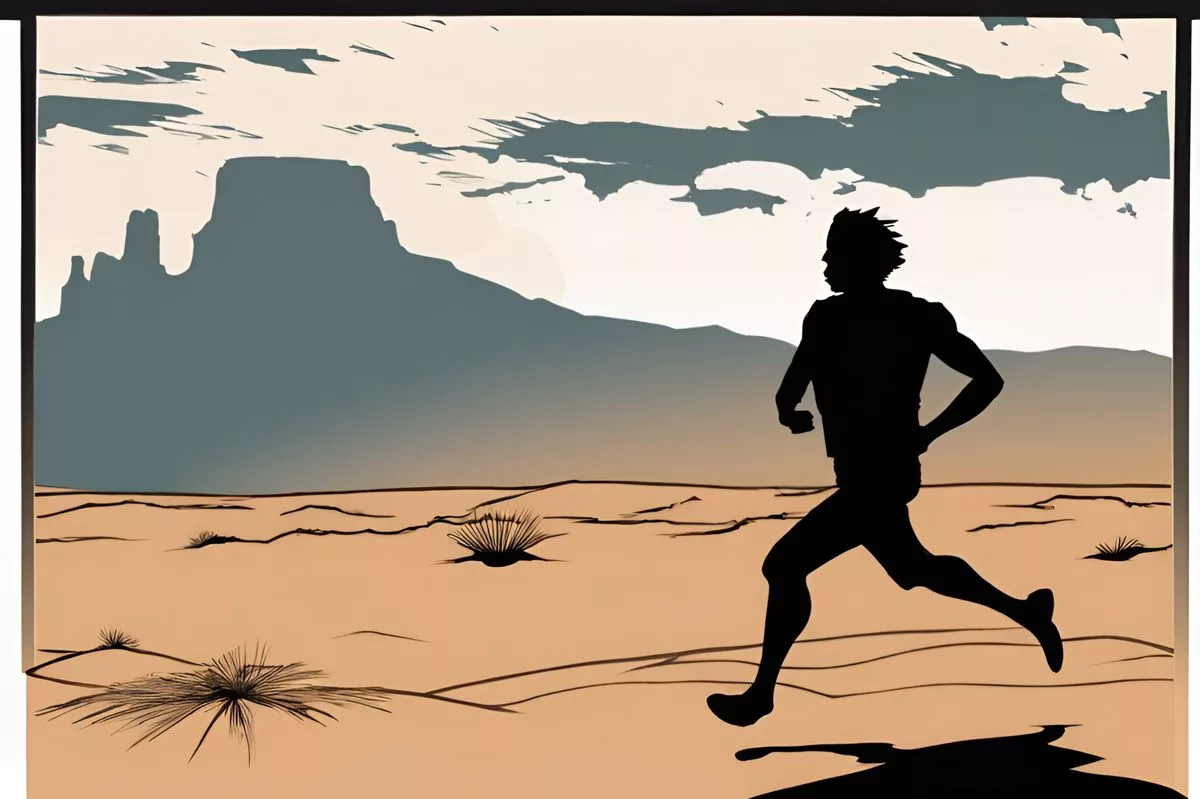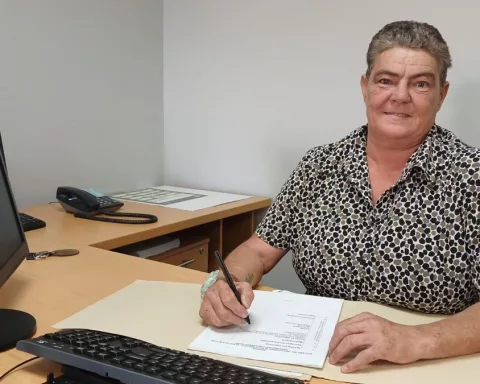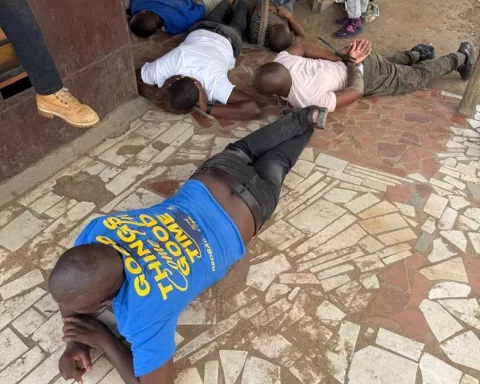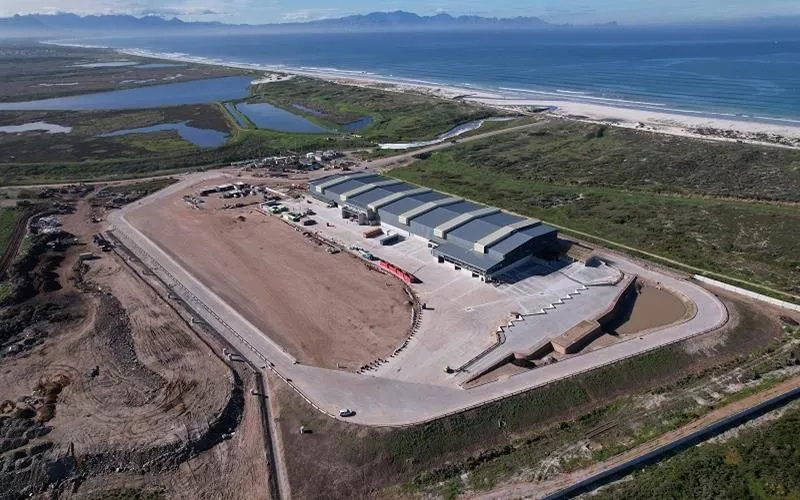Keith Boyd’s audacious run from Cape Town to Cairo is a vivid portrayal of South Africa’s continued pursuit of progress and liberty. Despite facing an attempted abduction in Ethiopia, the 57-year-old adventurer pressed on and recently celebrated his arrival in Cairo. Boyd’s objective is to motivate his compatriots, particularly the younger generation, to exercise their right to vote and to reinforce the idea that boundaries are meant to be transcended. His journey is a collective symbol of the undying resilience and grit that define the human spirit.
Keith Boyd, an intrepid adventurer of British-South African descent, has showcased an unshakeable resolve throughout his heroic endeavour to traverse the entire span of Africa on foot. Unfazed in the face of an attempted abduction in Ethiopia, the 57-year-old trooper has relentlessly pressed on and recently celebrated his arrival in Cairo. His audacious run from Cape Town to Cairo is a vivid portrayal of South Africa’s continued pursuit of progress and liberty.
The Epic Adventure
In the midst of uncertainty and potential peril, Keith Boyd, an intrepid adventurer of British-South African descent, has showcased an unshakeable resolve throughout his heroic endeavour to traverse the entire span of Africa on foot. Unfazed in the face of an attempted abduction in Ethiopia, the 57-year-old trooper has relentlessly pressed on and recently celebrated his arrival in Cairo.
Boyd’s expedition was abruptly disrupted when he and his accompanying videographer, Michael, were sinisterly earmarked by a faction of insurgent gunmen in Ethiopia. This potentially catastrophic event could have immediately been “curtains for them”, as Boyd himself put it. Yet, their nimble minds and negotiation prowess helped them mitigate the crisis. Steadfast in their will to live, they successfully brokered a deal with the would-be abductors, thereby averting a situation that could have been tragically fatal.
High Risk Encounter
The precariousness of this harrowing episode is amplified by the remote setting in which it unfolded. Boyd divulged that even a minor straying from the main route could be the thin line separating life from death. He narrated how, “if you drift half a kilometre from the path, you might as well have strayed 100 miles from civilisation”, bringing out the intense isolation and impending threat they were confronted with.
The abductors purportedly claimed association with the Fano insurgent movement, a claim that Boyd could not verify. Fano, as per reports by Al Jazeera, comprises of insurgent militiamen who once formed an alliance with the Ethiopian government. However, they defied orders to disband in April and subsequently seized control of several townships.
Journeying On
In the aftermath of this unnerving encounter, Boyd and his contingent were provided with a military convoy to journey a further 100km. Nevertheless, the unpredictable circumstances prompted them to divert their route to Sudan. Regardless of these disruptions, Boyd remains unwavering in his pursuit, which epitomises not just a personal test of endurance, but also a symbolic act associated with South Africa’s Freedom Day.
Boyd’s audacious run from Cape Town to Cairo is a vivid portrayal of South Africa’s continued pursuit of progress and liberty. The run is a reflection of the country’s resilience and tenacity, honouring the inaugural post-apartheid elections held in 1994. His objective is to motivate his compatriots, particularly the younger generation, to exercise their right to vote and to reinforce the idea that boundaries are meant to be transcended.
Embracing this ethos, Boyd aspires to topple a 26-year standing record for the quickest individual to run the length of Africa, pushing his personal boundaries by aiming to conclude over 30 days ahead of the current record on May 7th. He has been on the go for a cumulative total of 270 days so far.
The Fight for the Record
To lay claim to this record and earn official acknowledgment from the Guinness World Records, Boyd has initiated a petition imploring the Ethiopian government to allow him to run his final 500km stretch across the nation. His destiny is now contingent on the Ethiopian authorities, and as he aptly acknowledges, “They’re going to determine whether I can achieve this record or not. The decision is entirely up to them.”
More than Just a Run
Boyd’s expedition extends beyond personal ambition. It is a collective symbol of the undying resilience and grit that define the human spirit. His journey, fraught with peril and unpredictability, bears witness to his audacity and fortitude, encapsulating the spirit of progress and liberty that South Africa continues to champion. As he perseveres on his formidable journey, one fact remains resolute: Keith Boyd is an emblem of unyielding determination and tenacity.
1. Who is Keith Boyd?
Keith Boyd is an intrepid adventurer of British-South African descent who is on a heroic endeavour to traverse the entire span of Africa on foot.
2. What happened during Boyd’s expedition in Ethiopia?
Boyd and his accompanying videographer, Michael, were earmarked by a faction of insurgent gunmen in Ethiopia, which could have been fatal. They successfully brokered a deal with the would-be abductors, thereby averting a situation that could have been tragically fatal.
3. What is the Fano insurgent movement?
The Fano insurgent movement is an insurgent militiamen group who once formed an alliance with the Ethiopian government. They defied orders to disband in April and subsequently seized control of several townships.
4. Why did Boyd divert his route to Sudan?
Boyd diverted his route to Sudan due to the unpredictable circumstances in Ethiopia.
5. What record is Boyd trying to break?
Boyd is trying to break the 26-year standing record for the quickest individual to run the length of Africa, aiming to conclude over 30 days ahead of the current record on May 7th.
6. What is the significance of Boyd’s expedition?
Boyd’s audacious run from Cape Town to Cairo is a vivid portrayal of South Africa’s continued pursuit of progress and liberty. His objective is to motivate his compatriots, particularly the younger generation, to exercise their right to vote and to reinforce the idea that boundaries are meant to be transcended. His journey is a collective symbol of the undying resilience and grit that define the human spirit.












